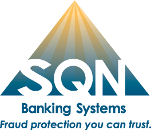 In the past, hackers had to “work hard” for their gains. They had to create programs and scripts that could steal data or siphon money, but a new generation of hackers doesn’t need to try as hard — meet the script kiddies. These beginner hackers break into computers or ATMs using scripts or automated tools created by other people.
In the past, hackers had to “work hard” for their gains. They had to create programs and scripts that could steal data or siphon money, but a new generation of hackers doesn’t need to try as hard — meet the script kiddies. These beginner hackers break into computers or ATMs using scripts or automated tools created by other people.
Although they may not be able to write debilitating code, they’re still dangerous, and according to some estimates, script kiddies are responsible for the majority of online attacks. So, how do you protect yourself? Check out these tips.
1. Update Your Security Software Regularly
Make sure to update all your security software on a regular basis. That includes the computers you use in your financial institution as well as your ATMs. When developers update software, they enhance security elements, and using outdated software puts you at risk for attacks.
2. Use Unique Architecture on Your Website
Scripts are usually written to target popular software, templates, and plugins. To protect your site from being hacked into by a script kiddie, you need to avoid using templates or popular plugins. Instead, work with a developer and create a unique architecture for your site. When your site is unique, a hacker can try to break in, but no one will ever be able to target your site with a one-size-fits-all script.
3. Track Site Traffic
Ideally, you should track everything that happens on your website for marketing purposes. You should know who visits your site, how long they stay there, which search words bring them there, and what they do while on your site. However, you also need to track traffic from a security standpoint.
To explain why, imagine a script kiddie is trying to access your customer’s accounts through your website, and they have a script that lets them test multiple usernames and passwords. If that was happening on your site, would you know? For your safety, the answer to that question needs to be a resounding “yes!” But unfortunately, for many site owners, the answer is not yes.
To protect your bank, you need tools in place that detect unusual activity and notify you when it’s happening. If possible, you also want to be able to track where these threats are coming from. A security expert should be able to detect the script being used as well as where the attack is originating from. Then, they can help you hone in on the best actions to protect your system.
4. Don’t Use Dummy Passwords
Whether you’re talking about admin access to your website, passwords for internal databases, or even your ATMs, you should not use dummy passwords. If a system comes with preset passwords, always change them to something unique, and then, change those passwords on a regular basis.
To give you an example of why this important, consider the fact that many ATM instruction manuals are online. In the past, script kiddies have downloaded these manuals. Then, they’ve used the original usernames and passwords to break into the ATMs — These breaches were possible because a surprising number of banks don’t bother changing their passwords from the manufacturer default.
5. Use a Virtual Private Network on Public WiFi
Script kiddies may also be able to find scripts that let them track keystrokes over public WiFi. If you’re ever on a business vacation or working in a local coffee shop, remember that your connection is not secure. Anyone else on that network could be tracking every website you enter as well as every key you hit.
If you’re reviewing loan applications, entering sensitive employee details into payroll software, or doing almost anything else, the hacker can start to steal all of that information. To protect yourself, make sure that you only use public WiFi with a virtual private network (VPN). Using a VPN routes all your activity through an encrypted network. In other words, everything you enter is put into a secret code that can’t be easily tracked or targeted.
To protect your financial institution from the script kiddies, you need a multi-pronged proactive approach that includes education and security software. At SQN Banking Systems, we keep on top of banking security threats and we develop solutions to protect financial institutions. To learn more about how we can help you, contact us today.
